17 start with L start with L

Relationships with land are fundamental components of Indigenous worldviews, politics, and identity. The disruption of land relations is a defining feature of colonialism; colonial governments and capitalist industries have violently dispossessed Indigenous lands, and have undermined Indigenous political authority through the production of racialized and gendered hierarchies of difference. Consequently, Indigenous resistance and visions for justice and liberation are bound up with land and land-body relationships that challenge colonial power. “Land back” has become a slogan for Indigenous land protectors across the Americas, reflecting how relations to land are foundational to calls for decolonization and liberation.
Land Back highlights the ways Indigenous peoples and anti-colonial co-resistors understand land relations for political resurgence and freedom across the Americas. Contributors place Indigenous practices of freedom within the particularities of Indigenous place-based laws, cosmologies, and diplomacies, while also demonstrating how Indigeneity is shaped across colonial borders. Collectively, they examine the relationships among language, Indigenous ontologies, and land reclamation; Indigenous ecology and restoration; the interconnectivity of environmental exploitation and racial, class, and gender exploitation; Indigenous diasporic movement; community urban planning; transnational organizing and relational anti-racist place-making; and the role of storytelling and children in movements for liberation.
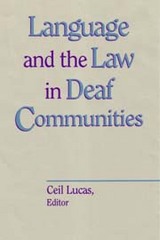
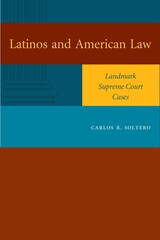
To achieve justice and equal protection under the law, Latinos have turned to the U.S. court system to assert and defend their rights. Some of these cases have reached the United States Supreme Court, whose rulings over more than a century have both expanded and restricted the legal rights of Latinos, creating a complex terrain of power relations between the U.S. government and the country's now-largest ethnic minority. To map this legal landscape, Latinos and American Law examines fourteen landmark Supreme Court cases that have significantly affected Latino rights, from Botiller v. Dominguez in 1889 to Alexander v. Sandoval in 2001.
Carlos Soltero organizes his study chronologically, looking at one or more decisions handed down by the Fuller Court (1888-1910), the Taft Court (1921-1930), the Warren Court (1953-1969), the Burger Court (1969-1986), and the Rehnquist Court (1986-2005). For each case, he opens with historical and legal background on the issues involved and then thoroughly discusses the opinion(s) rendered by the justices. He also offers an analysis of each decision's significance, as well as subsequent developments that have affected its impact. Through these case studies, Soltero demonstrates that in dealing with Latinos over issues such as education, the administration of criminal justice, voting rights, employment, and immigration, the Supreme Court has more often mirrored, rather than led, the attitudes and politics of the larger U.S. society.
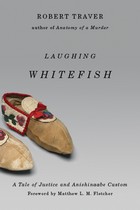
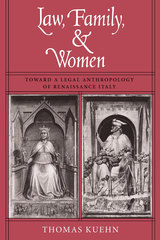
influence of law on Italian society during the Renaissance,
especially in the spheres of family and women. Kuehn's use
of legal sources along with letters, diaries, and
contemporary accounts allows him to present a compelling
image of the social processes that affected the shape and
function of the law.
The numerous law courts of Italian city-states
constantly devised and revised statutes. Kuehn traces the
permutations of these laws, then examines their use by
Florentines to arbitrate conflict and regulate social
behavior regarding such issues as kinship, marriage,
business, inheritance, illlegitimacy, and gender. Ranging
from one man's embittered denunciation of his father to
another's reaction to his kinsmen's rejection of him as
illegitimate, Law, Family, and Women provides
fascinating evidence of the tensions riddling family life in
Renaissance Florence. Kuehn shows how these same tensions,
often articulated in and through the law, affected women. He
examines the role of the mundualdus—a male legal guardian
for women—in Florence, the control of fathers over their
married daughters, and issues of inheritance by and through
women. An ambitious attempt to reformulate the agenda of
Renaissance social history, Kuehn's work will be of value to
both legal anthropologists and social historians.
Thomas Kuehn is professor of history at Clemson
University.
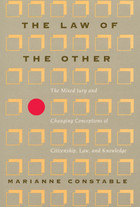
The "mixed jury" doctrine allowed resident foreigners to have law suits against English natives tried before juries composed half of natives and half of aliens like themselves. As she traces the transformations in this doctrine from the Middle Ages to its abolition in 1870, Constable also reveals the emergence of a world where law rooted in actual practices and customs of communities is replaced by law determined by officials, where juries no longer strive to speak the truth but to ascertain the facts.
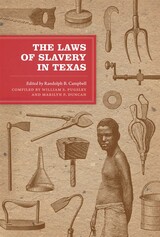
The laws that governed the institution of slavery in early Texas were enacted over a fifty-year period in which Texas moved through incarnations as a Spanish colony, a Mexican state, an independent republic, a part of the United States, and a Confederate state. This unusual legal heritage sets Texas apart from the other slave-holding states and provides a unique opportunity to examine how slave laws were enacted and upheld as political and legal structures changed. The Laws of Slavery in Texas makes that examination possible by combining seminal historical essays with excerpts from key legal documents from the slave period and tying them together with interpretive commentary by the foremost scholar on the subject, Randolph B. Campbell.
Campbell's commentary focuses on an aspect of slave law that was particularly evident in the evolving legal system of early Texas: the dilemma that arose when human beings were treated as property. As Campbell points out, defining slaves as moveable property, or chattel, presented a serious difficulty to those who wrote and interpreted the law because, unlike any other form of property, slaves were sentient beings. They were held responsible for their crimes, and in numerous other ways statute and case law dealing with slavery recognized the humanness of the enslaved. Attempts to protect the property rights of slave owners led to increasingly restrictive laws—including laws concerning free blacks—that were difficult to uphold. The documents in this collection reveal both the roots of the dilemma and its inevitable outcome.
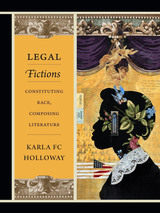
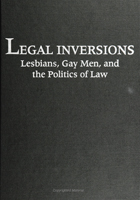
Law reform struggles have always been a part of the grassroots lesbian and gay agenda. These critical essays examine the politics of these engagements, of lesbians, gay men, and the law in the United States, Canada, and the United Kingdom. From a wide range of perspectives, the contributors combine new conceptual insights with a concern for the practicalities of political engagements, tackling such vital topics as legal definitions of homosexuality, AIDS activism, and race and sexuality.
Contributors: Katherine Arnup, Susan Boyd, Peter M. Cicchino, Davina Cooper, Bruce R. Deming, Mary Eaton, William F. Flanagan, Leo Flynn, Shelley A. M. Gavigan, Leslie J. Moran, Katherine M. Nicholson, Cynthia Petersen, Ruthann Robson, and the editors.
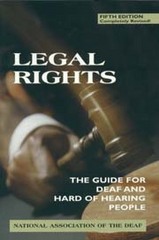
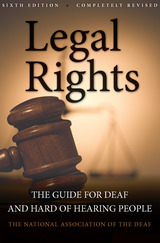
The new Legal Rights also explains the significant amendments to these laws, including the ADA Amendments Act (ADAAA) and new regulations to its Title II concerning public entities and Title III pertaining to public accommodations and commercial facilities. The reauthorization of IDEA expanded the No Child Left Behind Act requirement for highly qualified teachers to all students with disabilities. This new edition also tracks the trend of passing a Deaf and Hard of Hearing Children’s Bill of Rights in a growing number of state legislatures.
This completely new resource also delineates new legislation such as the Twenty-First Century Communications Video and Accessibility Act, which ensures access to the newest communications technology for deaf and hard of hearing people. Legal Rights also includes information on the use of interpreters in the legal system, securing its position as the most comprehensive reference of legal information for deaf and hard of hearing people now available.
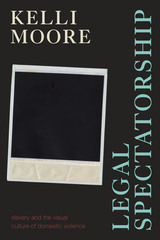
Duke University Press Scholars of Color First Book Award recipient
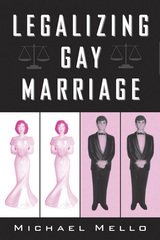
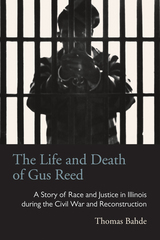
Gus Reed was a freed slave who traveled north as Sherman’s March was sweeping through Georgia in 1864. His journey ended in Springfield, Illinois, a city undergoing fundamental changes as its white citizens struggled to understand the political, legal, and cultural consequences of emancipation and black citizenship. Reed became known as a petty thief, appearing time and again in the records of the state’s courts and prisons. In late 1877, he burglarized the home of a well-known Springfield attorney—and brother of Abraham Lincoln’s former law partner—a crime for which he was convicted and sentenced to the Illinois State Penitentiary.
Reed died at the penitentiary in 1878, shackled to the door of his cell for days with a gag strapped in his mouth. An investigation established that two guards were responsible for the prisoner’s death, but neither they nor the prison warden suffered any penalty. The guards were dismissed, the investigation was closed, and Reed was forgotten.
Gus Reed’s story connects the political and legal cultures of white supremacy, black migration and black communities, the Midwest’s experience with the Civil War and Reconstruction, and the resurgence of nationwide opposition to African American civil rights in the late nineteenth century. These experiences shaped a nation with deep and unresolved misgivings about race, as well as distinctive and conflicting ideas about justice and how to achieve it.
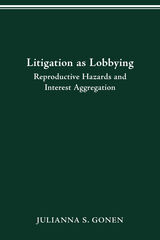
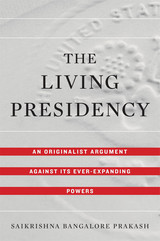
A constitutional originalist sounds the alarm over the presidency’s ever-expanding powers, ascribing them unexpectedly to the liberal embrace of a living Constitution.
Liberal scholars and politicians routinely denounce the imperial presidency—a self-aggrandizing executive that has progressively sidelined Congress. Yet the same people invariably extol the virtues of a living Constitution, whose meaning adapts with the times. Saikrishna Bangalore Prakash argues that these stances are fundamentally incompatible. A constitution prone to informal amendment systematically favors the executive and ensures that there are no enduring constraints on executive power. In this careful study, Prakash contends that an originalist interpretation of the Constitution can rein in the “living presidency” legitimated by the living Constitution.
No one who reads the Constitution would conclude that presidents may declare war, legislate by fiat, and make treaties without the Senate. Yet presidents do all these things. They get away with it, Prakash argues, because Congress, the courts, and the public routinely excuse these violations. With the passage of time, these transgressions are treated as informal constitutional amendments. The result is an executive increasingly liberated from the Constitution. The solution is originalism. Though often associated with conservative goals, originalism in Prakash’s argument should appeal to Republicans and Democrats alike, as almost all Americans decry the presidency’s stunning expansion. The Living Presidency proposes a baker’s dozen of reforms, all of which could be enacted if only Congress asserted its lawful authority.
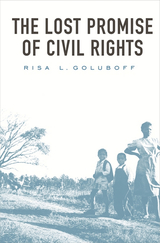
Listen to a short interview with Risa GoluboffHost: Chris Gondek | Producer: Heron & Crane
In this groundbreaking book, Risa L. Goluboff offers a provocative new account of the history of American civil rights law. The Supreme Court's decision in Brown v. Board of Education has long dominated that history. Since 1954, generations of judges, lawyers, and ordinary people have viewed civil rights as a project of breaking down formal legal barriers to integration, especially in the context of public education. Goluboff recovers a world before Brown, a world in which civil rights was legally, conceptually, and constitutionally up for grabs. Then, the petitions of black agricultural workers in the American South and industrial workers across the nation called for a civil rights law that would redress economic as well as legal inequalities. Lawyers in the new Civil Rights Section of the Department of Justice and in the NAACP took the workers' cases and viewed them as crucial to attacking Jim Crow. By the time NAACP lawyers set out on the path to Brown, however, they had eliminated workers' economic concerns from their litigation agenda. When the lawyers succeeded in Brown, they simultaneously marginalized the host of other harms--economic inequality chief among them--that afflicted the majority of African Americans during the mid-twentieth century. By uncovering the lost challenges workers and their lawyers launched against Jim Crow in the 1940s, Goluboff shows how Brown only partially fulfilled the promise of civil rights.
READERS
Browse our collection.
PUBLISHERS
See BiblioVault's publisher services.
STUDENT SERVICES
Files for college accessibility offices.
UChicago Accessibility Resources
home | accessibility | search | about | contact us
BiblioVault ® 2001 - 2024
The University of Chicago Press









